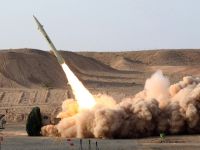Gulf youth share what’s on their minds, in their hearts through documentary films at 4th Gulf Film Festival

The fourth edition of the Gulf Film Festival, held under the patronage of His Highness Sheikh Majid Bin Mohammed Bin Rashid Al Maktoum, Chairman of the Dubai Culture & Arts Authority (Dubai Culture), is showcasing 12 documentaries by young Arab filmmakers as part of its Student Competition segment.
The films are among more than 150 shorts, documentaries and features from around the region and around the world that will screen to the public for free from April 14 to 20 at Dubai Festival City.
The documentaries, shortlisted from more than 80 entries from across the GCC region, Iraq and Yemen, are an incisive look at the contemporary Arab world as perceived by the region’s youth. Realistic takes on modern-day issues, the films are also a reflection of the Arab youth perspective – of how they view their country and their aspirations for the future. The 12 documentaries include seven films from the UAE and five from Iraq.
Masoud Amralla Al Ali, Festival Director, Gulf Film Festival, said: “The Arab world has a rich goldmine of creative talent, as yet untapped. Their approach to film is radically different as they explore the society through their youthful eyes and outlook. The documentaries selected for the Student Competition at the Gulf Film Festival bring out fresh dimensions – both in filmmaking techniques and in their content.”
Films from the UAE include Al Kandorah, a social commentary on the national attire directed by directed by Lamya Al Mualla and Maitha Al Haddad, while Mariam Al Nuaimi’s Lahjitna (Our Accent) is a compelling documentary on how the Emirati accent is being lost with time in the face of multiculturalism.
The city of Dubai houses over 200 nationalities and Maysoon Al Ali’s Nations and Tribes takes the camer though the cultural similarities and differences of this diverse community. Thabit Al Mawaly’s Maseera explores the civic pride associated with the UAE National Day as the youth of Dubai take to the streets in a unique celebration of solidarity, accompanied by customs that are foreign to this society.
A powerful take on the contemporary society and the erosion of traditional values is Fatima Ibrahim’s Rabbit Hole, a student of Sharjah Women’s College. She also charts some reasons that lead to the cultural alienation. Hamad Saghran’s Igrab is another documentary that contests for the top prize. A Car is just a Car by Marwan Alhammadi sheds light on the passion for fancy and exotic cars by the Arab youngsters.
The line-up of short films from Iraq comprise Imad Ali Abbas’ Speak Your Mind, which explores the experiences of three Iraqi journalists, Ibrahim Jassam, who was arrested by US forces and had to spend a year and a half in their prisons without being charged.
Hassanain Al Hani’s The Widow documents how Iraq is a country of 3 million orphans and widows, almost without parallel, who live below the poverty line because they do not know how to obtain social welfare payments from the state.
Destruction on a social level can be seen in Hussein Mohsen’s Charcoal and Ashes which portrays trees being cut down to be used as charcoal, thereby destroying the environment; while Hashim Al Efari’s Gulls of the Peace documents the life of Christian families after they migrated from Iraq. Omar Falah’s Sing Your Song documents the story of Majid, a young talented singer of Iraqi folk music.
The Student Competition is open to works made or produced by students during their academic study, or as part of a college project. The Competition jury comprises veteran Egyptian filmmaker Magdy Ahmed Aly, with Emirati poet, author Ahmed Rashed Thani, and Iraqi filmmaker Kais Al-Zubaidi.
In the Documentary Films category of the Student Competition, first, second and third place are awarded AED20,000, AED15,000, and AED10,000 respectively. There are also three prize categories in the Short Films section for students, with the same allocation of prize money. A Special Jury Prize of AED15,000 goes to the best documentary or short.
The Gulf Film Festival includes Gulf-wide, student and international shorts competitions, as well as out-of-competition segments, a children’s cinema segment, a focus on experimental filmmaker Gerard Courant, a master class by renowned director Abbas Kiarostami and a series of workshops and discussions. All Gulf Film Festival films are free and open to the public.
The Festival will run from April 14 to 20, 2011, at Dubai Festival City and will screen more than 150 films free to the public. The Gulf Film Festival is supported by Dubai Culture & Arts Authority and is held in association with Dubai Studio City. More details on the festival are available online at www.gulffilmfest.com.The fourth edition of the Gulf Film Festival, held under the patronage of His Highness Sheikh Majid Bin Mohammed Bin Rashid Al Maktoum, Chairman of the Dubai Culture & Arts Authority (Dubai Culture), is showcasing 12 documentaries by young Arab filmmakers as part of its Student Competition segment.
The films are among more than 150 shorts, documentaries and features from around the region and around the world that will screen to the public for free from April 14 to 20 at Dubai Festival City.
The documentaries, shortlisted from more than 80 entries from across the GCC region, Iraq and Yemen, are an incisive look at the contemporary Arab world as perceived by the region’s youth. Realistic takes on modern-day issues, the films are also a reflection of the Arab youth perspective – of how they view their country and their aspirations for the future. The 12 documentaries include seven films from the UAE and five from Iraq.
Masoud Amralla Al Ali, Festival Director, Gulf Film Festival, said: “The Arab world has a rich goldmine of creative talent, as yet untapped. Their approach to film is radically different as they explore the society through their youthful eyes and outlook. The documentaries selected for the Student Competition at the Gulf Film Festival bring out fresh dimensions – both in filmmaking techniques and in their content.”
Films from the UAE include Al Kandorah, a social commentary on the national attire directed by directed by Lamya Al Mualla and Maitha Al Haddad, while Mariam Al Nuaimi’s Lahjitna (Our Accent) is a compelling documentary on how the Emirati accent is being lost with time in the face of multiculturalism.
The city of Dubai houses over 200 nationalities and Maysoon Al Ali’s Nations and Tribes takes the camer though the cultural similarities and differences of this diverse community. Thabit Al Mawaly’s Maseera explores the civic pride associated with the UAE National Day as the youth of Dubai take to the streets in a unique celebration of solidarity, accompanied by customs that are foreign to this society.
A powerful take on the contemporary society and the erosion of traditional values is Fatima Ibrahim’s Rabbit Hole, a student of Sharjah Women’s College. She also charts some reasons that lead to the cultural alienation. Hamad Saghran’s Igrab is another documentary that contests for the top prize. A Car is just a Car by Marwan Alhammadi sheds light on the passion for fancy and exotic cars by the Arab youngsters.
The line-up of short films from Iraq comprise Imad Ali Abbas’ Speak Your Mind, which explores the experiences of three Iraqi journalists, Ibrahim Jassam, who was arrested by US forces and had to spend a year and a half in their prisons without being charged.
Hassanain Al Hani’s The Widow documents how Iraq is a country of 3 million orphans and widows, almost without parallel, who live below the poverty line because they do not know how to obtain social welfare payments from the state.
Destruction on a social level can be seen in Hussein Mohsen’s Charcoal and Ashes which portrays trees being cut down to be used as charcoal, thereby destroying the environment; while Hashim Al Efari’s Gulls of the Peace documents the life of Christian families after they migrated from Iraq. Omar Falah’s Sing Your Song documents the story of Majid, a young talented singer of Iraqi folk music.
The Student Competition is open to works made or produced by students during their academic study, or as part of a college project. The Competition jury comprises veteran Egyptian filmmaker Magdy Ahmed Aly, with Emirati poet, author Ahmed Rashed Thani, and Iraqi filmmaker Kais Al-Zubaidi.
In the Documentary Films category of the Student Competition, first, second and third place are awarded AED20,000, AED15,000, and AED10,000 respectively. There are also three prize categories in the Short Films section for students, with the same allocation of prize money. A Special Jury Prize of AED15,000 goes to the best documentary or short.
The Gulf Film Festival includes Gulf-wide, student and international shorts competitions, as well as out-of-competition segments, a children’s cinema segment, a focus on experimental filmmaker Gerard Courant, a master class by renowned director Abbas Kiarostami and a series of workshops and discussions. All Gulf Film Festival films are free and open to the public.
The Festival will run from April 14 to 20, 2011, at Dubai Festival City and will screen more than 150 films free to the public. The Gulf Film Festival is supported by Dubai Culture & Arts Authority and is held in association with Dubai Studio City. More details on the festival are available online at www.gulffilmfest.com.
Background Information
The Dubai Culture and Arts Authority
The Dubai Culture & Arts Authority (Dubai Culture) Was Launched on March 8, 2008 by His Highness Sheikh Mohammed Bin Rashid Al Maktoum, Uae Vice President & Prime Minister and Ruler of Dubai. Dubai Culture Plays a Critical Part in Achieving the Vision of the Dubai Strategic Plan 2021 of Establishing the City as Vibrant, Global Arabian Metropolis That Shapes Culture and Arts in the Region and the World.
TECOM Investments
TECOM Group, (formerly known as TECOM Investments) a member of Dubai Holding, is a strategic business enabler that contributes to the realisation of Dubai’s economic aspirations, through the creation of sector-focused business communities and work environments that provide innovative ecosystems.
TECOM Group’s Business Communities reinforce Dubai’s position as a global hub for business and commerce. Covering six vibrant industry sectors, we offer a home in the region to 5,600 companies ranging from start-ups to multinational corporations with a total workforce of 90,000.






